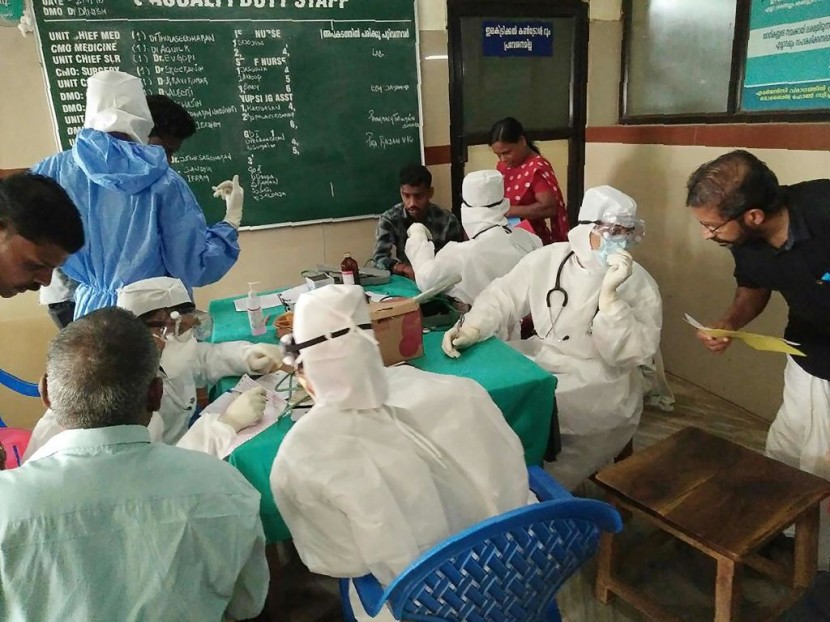Two deaths from the very uncommon Nipah virus have prompted a warning in the southern Indian state of Kerala.
BBC reported that both fatalities happened in the Kozhikode district of the state on August 30 and earlier this month. Two family members of the victim also tested positive for the virus and are now receiving medical attention for their illness.
This has been Kerala's fourth Nipah widespread since 2018.

Kerala on High Alert
The World Health Organization (WHO) classifies the Nipah virus infection as a "zoonotic illness" since it may be spread from animals to people. Contaminated food and close contact with an infected person are additional vectors of spread.
Sometimes, infected people exhibit no symptoms at all, while in others, they have severe breathing difficulties. Nipah infections in pregnant women may cause encephalitis, a life-threatening brain disorder, in the most extreme situations.
Due to the lack of a vaccine or therapy to treat the disease, people who get it have a significant risk of dying from it. Symptom control and comfort care are all that can be offered at this point.
On Tuesday, September 12, Indian Health Minister Mansukh Mandaviya announced that a team of specialists had been sent to Kerala to examine the situation and help the state government manage the crisis.
Earlier this week, Veena George, the state's minister of health, said that lab testing confirmed that the virus strain responsible for the current epidemic was the same as the one discovered in Bangladesh. She also revealed that researchers from Pune's National Institute of Virology will establish a mobile lab at Kozhikode Medical College to conduct viral testing and bat population assessments.
George has said that 168 persons who had contact with the two fatalities are now being tested for the virus.
According to BBC, the state government has set up a command center in Kozhikode to keep an eye on things. All healthcare providers have been urged to take all necessary precautions to prevent the spread of illness.
The authorities in Kozhikode have designated seven villages to be containment zones. They have also closed certain schools and workplaces in the area, according to a Reuters report.
Pinarayi Vijayan, chief minister of Kerala, said the state administration was taking the fatalities "very seriously" and urged residents to take precautions, such as putting on masks and only going to hospitals in cases of emergency.
Infection Widespread Since 2018
In 2018, Kozhikode saw its first and worst Nipah epidemic, with 17 of 18 confirmed cases ending in death. One incidence was recorded in 2019 when a patient in Ernakulam district made a full recovery. Nonetheless, in 2021, a 12-year-old sick kid in the hamlet of Chathamangalam passed away.
In May, Reuters released the results of an analysis that revealed the optimal circumstances for the emergence of a virus like Nipah in the tropical state of Kerala, which is seeing fast urbanization and rapid tree loss. As their natural habitats are destroyed, animals are forced to relocate closer to human populations, which facilitates the transmission of viruses from animals to people, according to experts.
© 2026 HNGN, All rights reserved. Do not reproduce without permission.








